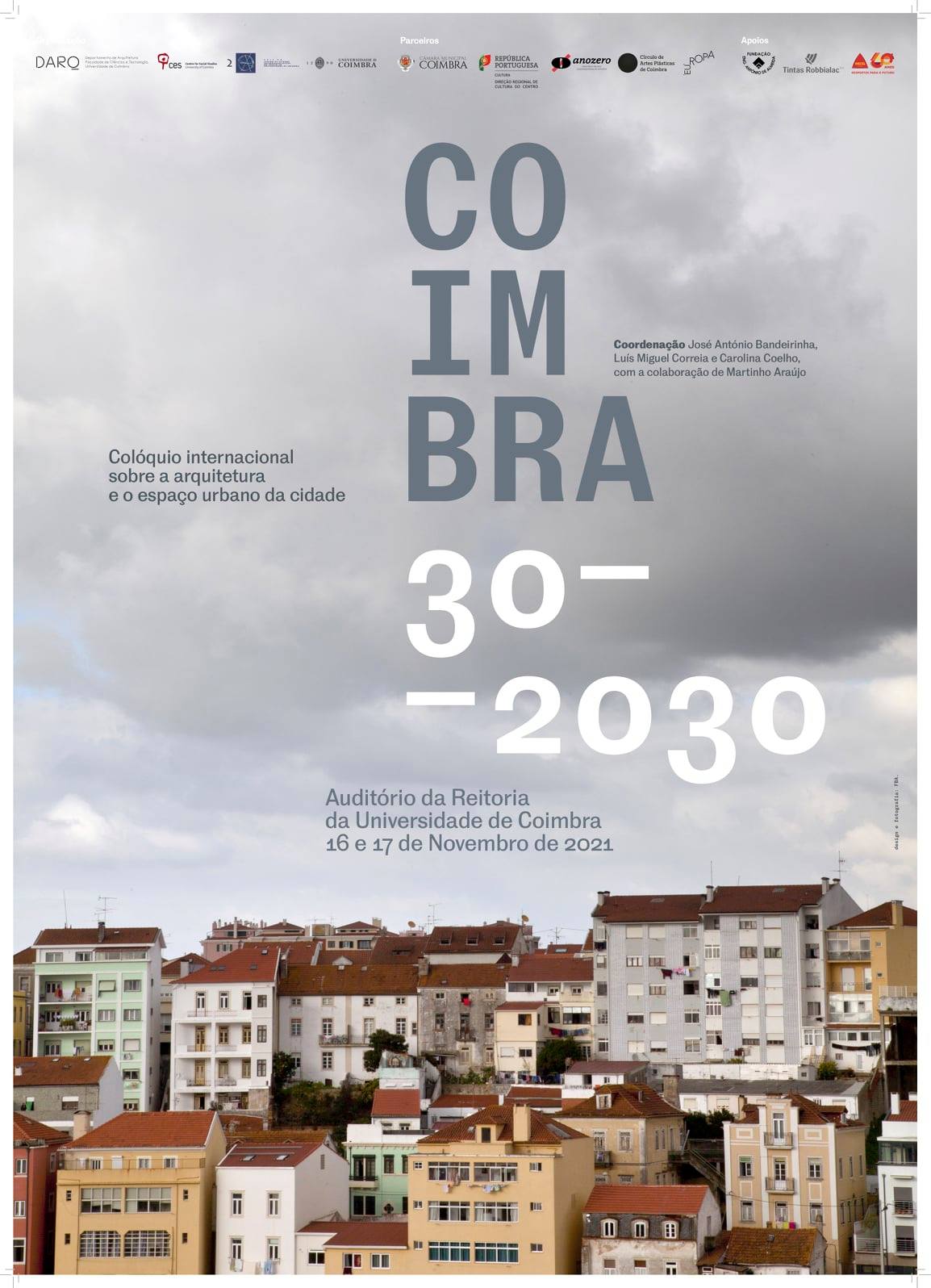Colóquio
Coimbra 30-2030
16 e 17 de novembro de 2021, 9h00-19h30
Auditório da Reitoria da Universidade de Coimbra
Apresentação
A cidade é por natureza o lugar do Homem. O lugar onde desde há muito fundámos as nossas raízes, nos abrigámos e estabelecemos as nossas relações sociais, económicas e culturais. A vida e a imagem da cidade são sempre resultado das circunstâncias locais e globais de cada momento. O Homem expressa-se no espaço elegendo o que o precede e, naturalmente, edificando os anseios futuros. A cidade é, por conseguinte, a revelação superior da nossa existência no tempo. É na organização do espaço e na arquitetura que encontramos uma parte importante da nossa história. A chegada da era digital assentiu à transformação física a dimensão universal. Abriu-se a possibilidade de ocuparmos as ‘cidades dos outros’ a qualquer instante. Hoje, são poucos os territórios que têm fronteiras e limites ‘seguros’. A Agenda 2030 das Nações Unidas sugere-nos um caminho fundamentado em dezassete Objetivos de Desenvolvimento Sustentável.
Com o presente colóquio, pretende-se desenhar a cidade de Coimbra à luz de certas permanências que, por ora, ainda identificam distintas ‘reformas’ produzidas ao longo da sua existência. Observaremos tais transformações, enquadrando-as no tempo e no espaço, com centro na arquitetura da cidade e em alguns dos seus protagonistas, os arquitetos. Assim, em dois dias, reúnem-se autores de reconhecido mérito nacional e internacional que nos oferecerão uma renovada perspetiva da evolução da cidade. Posicioná-la-emos no contexto regional, nacional e no espaço europeu e global. Da presença romana à contemporaneidade (30-2030), testemunharemos como na cidade de Coimbra os arquitetos manifestaram, através dos seus projetos e obras, os sonhos da época, legados do devir.
Organização: José António Bandeirinha, Luís Miguel Correia e Carolina Coelho
Departamento de Arquitectura da Faculdade de Ciências e Tecnologia da Universidade de Coimbra (DARQ-FCTUC) | Centro de Estudos Sociais da Universidade de Coimbra (CES-UC) | Centro de Estudos Interdisciplinares do Século XX da Universidade de Coimbra (CEIS20-UC)


